- It is not necessary for the candidate to have a Statement or EHC plan in place to get an access arrangement.
- The centre must provide a compelling case with appropriate documented evidence.
- Suitable evidence includes statements or letters from professionals and specialist services.
- Reading test scores should be provided for candidates with learning difficulties.
It is not necessary for a candidate to have a Statement or EHC Plan in place in order to be eligible for an access arrangement. The main requirement is that the centre can provide a compelling case that:
- the candidate needs the access arrangement
- there is strong evidence to show why this is the case
- the access arrangement reflects the candidate's normal way of working.
This is referred to as 'painting a picture of need' and should take the form of a letter or file note. The format and contents, along with the evidence provided will depend on the individual needs of the candidate.
This letter should be written by the SENCo, held by the centre and made available on request in a centre inspection.
There is no set format for painting a picture of need.

Letter contents
For each access arrangement the JCQ guidance explains what the letter or file note should contain. (For example refer to the .)
So as not to give an unfair advantage, the centre's letter or file note must:
- confirm that the candidate has persistent and significant difficulties when accessing and processing information and is disabled within the meaning of the Equality Act 2010
- include evidence of the candidate's current difficulties and how they substantially impact on teaching and learning in the classroom
- show the involvement of teaching staff in determining the need for [xxx] access arrangement
- confirm that without the application of [xxx] access arrangement the candidate would be at a substantial disadvantage; (the candidate would be at a substantial disadvantage when compared with other, non-disabled candidates undertaking the assessment.)
- confirm that [xxx] access arrangement is the candidate's normal way of working within the centre as a direct consequence of their disability
Access Arrangements and reasonable adjustments
Here is an example letter provided for candidate 'A', a profoundly deaf student.
Explore the parts of the letter and see how the various elements relate to the JCQ guidance.
Select this link for a text version of this activity.
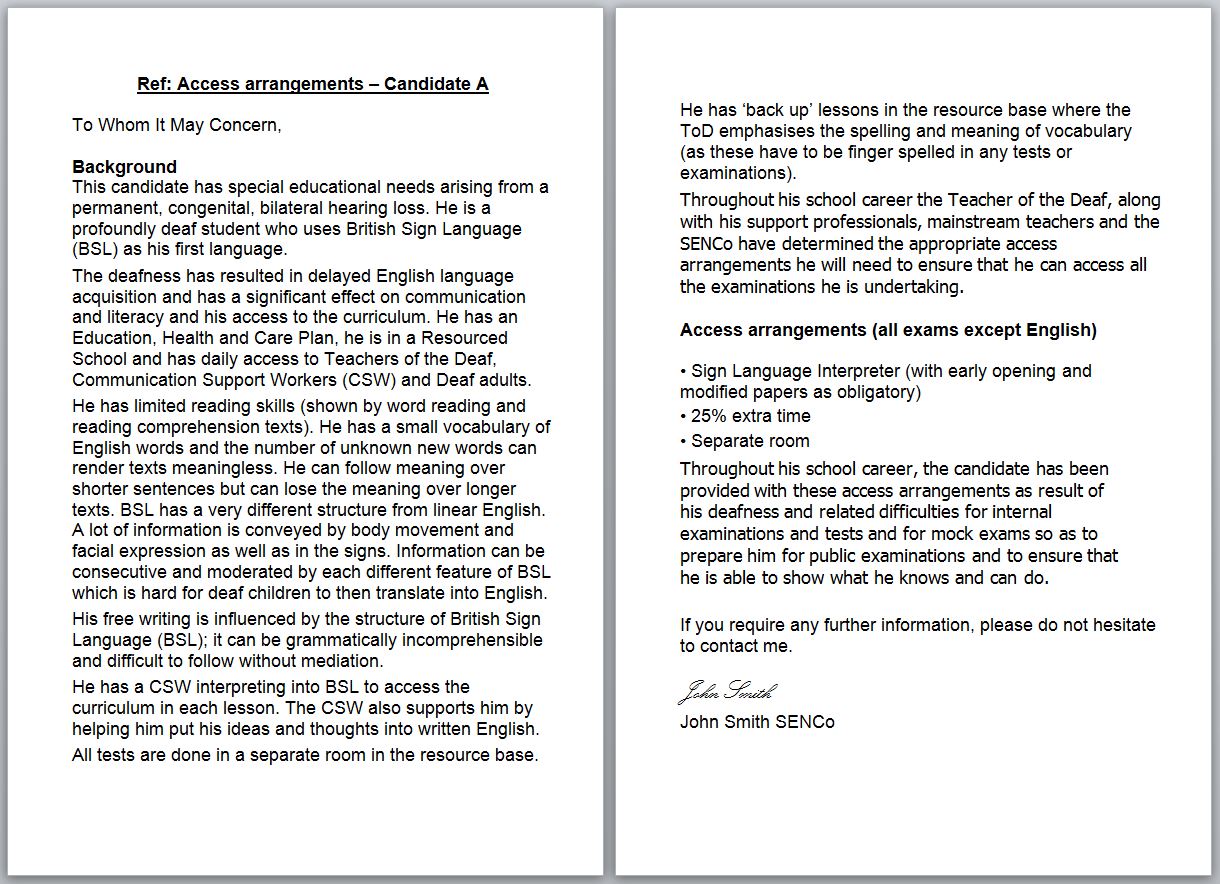
Select 'next' or explore the report to see information about the contents.
The feedback from using the 'next' button will appear in the text box below.
This letter has been written for candidate 'H' a severely sight-impaired student.
Explore the parts of the letter and see how the various elements relate to the JCQ guidance.
Select this link for a text version of this activity.
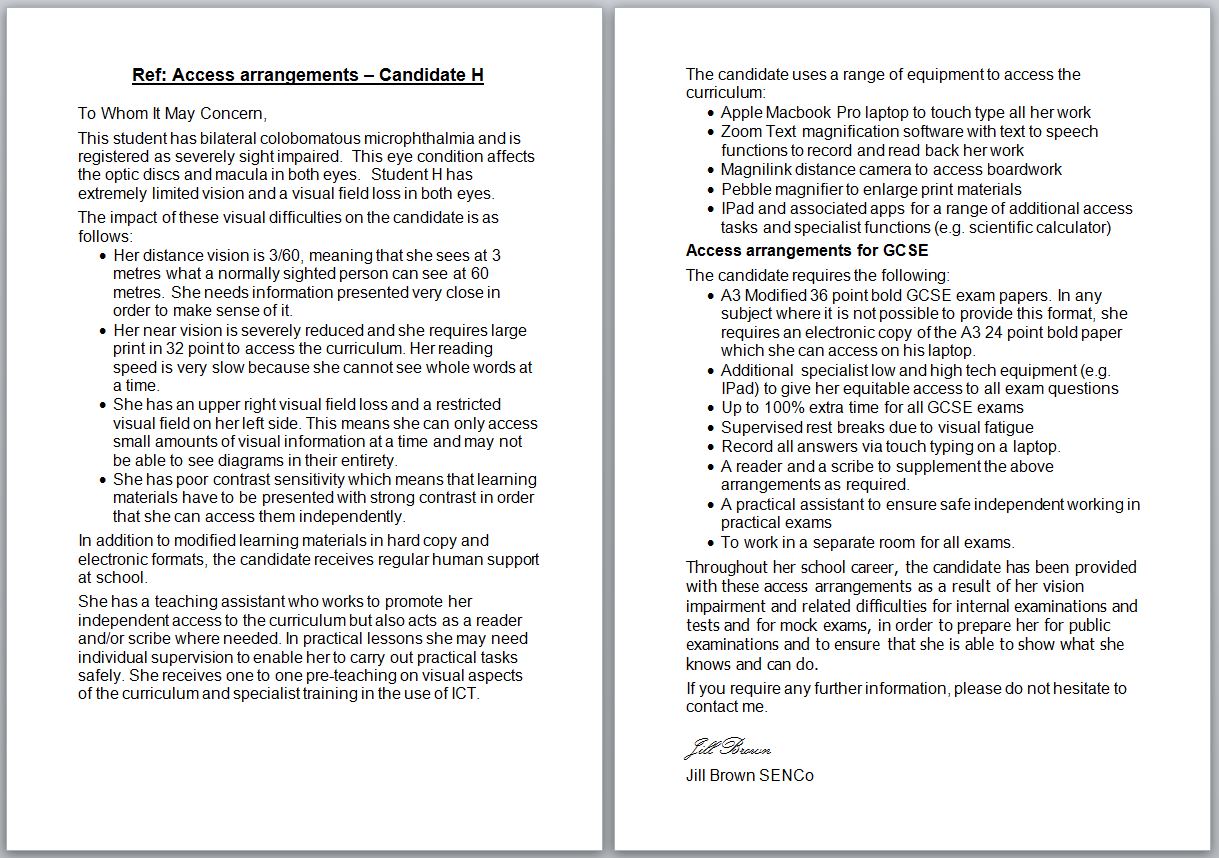
Select 'next' or explore the report to see information about the contents.
The feedback from using the 'next' button will appear in the text box above.
This letter has been written for candidate 'J' a multi-sensory-impaired student.
Explore the parts of the letter and see how the various elements relate to the JCQ guidance.
Select this link for a text version of this activity.
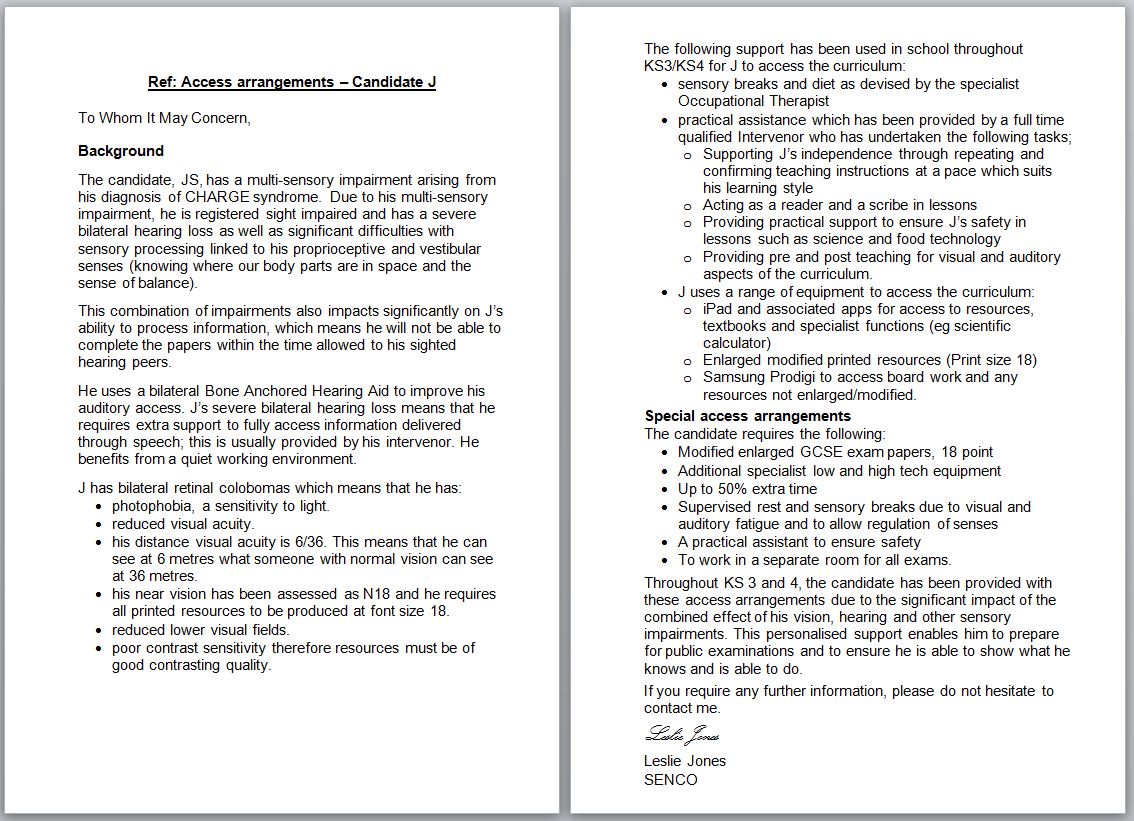
Select 'next' or explore the report to see information about the contents.
The feedback from using the 'next' button will appear in the text box above.
Supporting evidence
The case will be more compelling if it is supported by evidence. (For example, refer to the .)
The centre's letter or file note is supported with, for example:
- a letter from CAMHS, a HCPC registered psychologist, a hospital consultant, a psychiatrist; or
- a letter from the Local Authority Specialist Service, Local Authority Sensory Impairment Service or Occupational Health Service; or
- a letter from a Speech and Language Therapist (SaLT); or
- a current Statement of Special Educational Needs relating to the candidate's secondary education, or an Education, Health and Care Plan, which confirms the candidate's disability
Access Arrangements and reasonable adjustments
Relating evidence to a Statement or Plan
Although a Statement or EHC Plan is not required, for those learners who have them, it is good practice to ensure that reference to access arrangements for all types of assessment is included in their Statement or Plan, as this provides good evidence for the picture of need which needs to be painted when applying for access arrangements.
Embedding in normal working
It is important that these be discussed from as early in the learner's career as possible so that they are embedded in practice within the school and their use in formal assessments takes place smoothly as the learner's normal way of working. This is particularly important for pupils in the secondary phase of education but also applies to Key Stage 1 and 2 SATs and the phonic check at the end of Year 1. Paying close attention to a pupil's 'normal way of working' throughout their education, and in particular in the time leading up to an assessment is also an important way of avoiding the use of access arrangements in the classroom which would not be allowed in an external examination.
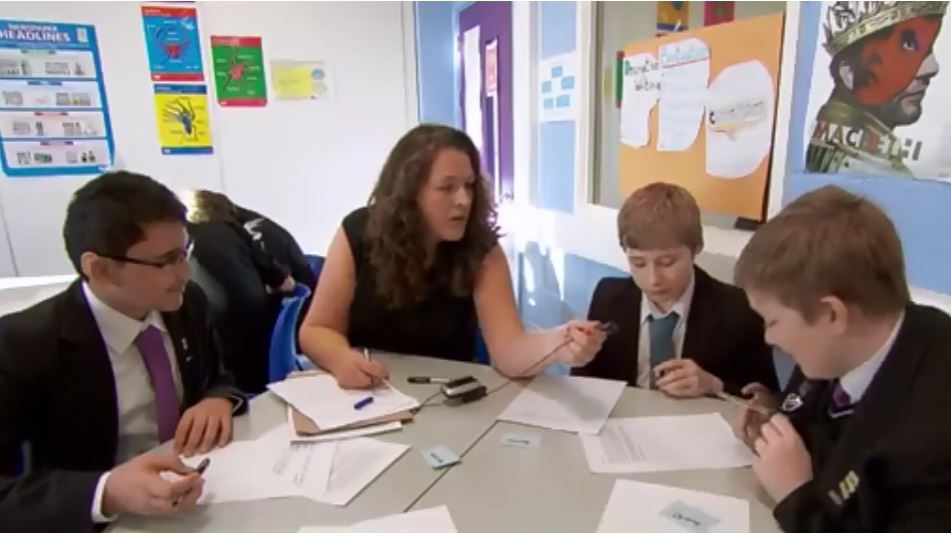
Candidates with learning difficulties and reading tests
For candidates with learning difficulties, the evidence required to support an application for extra time or a reader should always include standardised reading test scores, in order to demonstrate their eligibility for these arrangements.
Please note that the 2019-2020 regulations state that tests used to support applications for access arrangements must be current editions.
These tests scores should be recorded on JCQ's Form 8 and filed for possible inspection by JCQ centre inspectors.
Sensory impaired candidates and reading tests
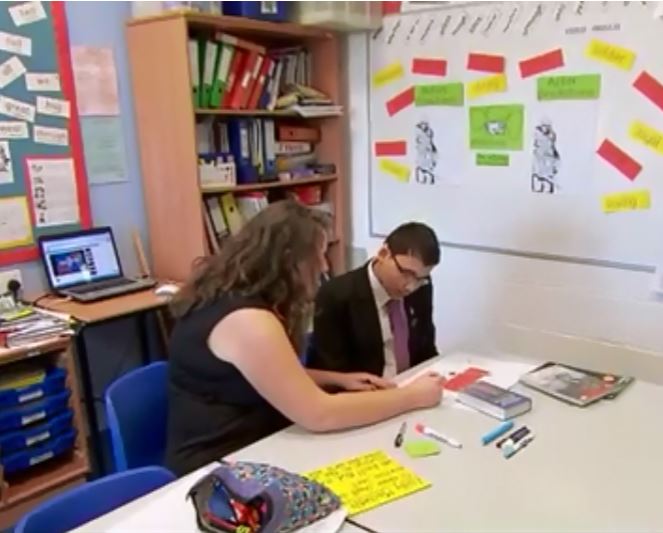
It is important to emphasise that for candidates with sensory impairment a standardised reading test score is not always required in order to justify a request for extra time or a reader in examinations. This is because it may not always be possible to assess these candidates' reading accuracy, speed or comprehension effectively and also because medical evidence should already exist which proves that they have a disability and are therefore entitled to reasonable adjustments.
This is particularly important for pupils with vision impairment for whom appropriate reading tests are not readily available. Nevertheless, the centre must still demonstrate that the candidate has an impairment which has a 'substantial and long term adverse effect' on his/her reading' and provide evidence of his or her normal way of working as evidence to support the application.